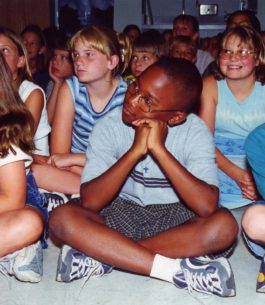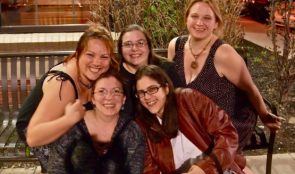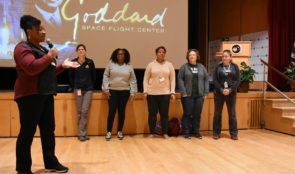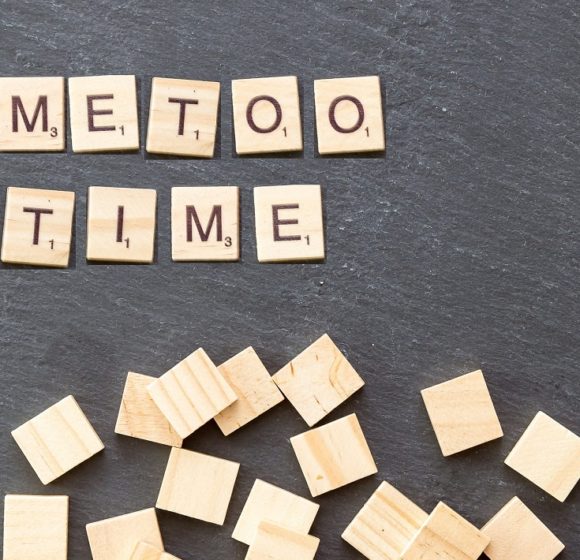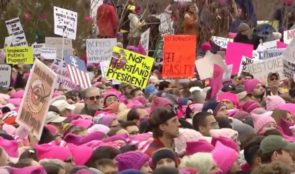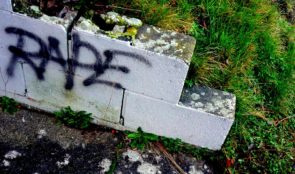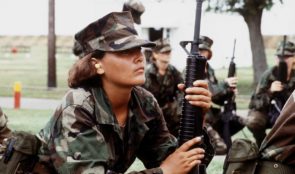I said “metoo” during professor Anita Hill’s testimony against then-Supreme Court nominee Clarence Thomas more than 25 years ago. But I was not allowed to provide the corroborating testimony that could have rescued Hill from the vitriolic and humiliating interrogation she endured from the all-male Senate Judiciary Committee. Neither was Sukari Hardnett, or Kay Savage or Rose Jourdain.
At the time, I hadn’t even labeled Thomas’s behavior as sexual harassment, not because it wasn’t, but because I found his behavior to be commonplace.
He was simply another man who felt entitled to objectify the women in his employ. Having spent years working on Capitol Hill, it wasn’t my first brush with such behavior. It was rampant in the halls of Congress.
Predictably, the confirmation hearing degenerated into a “he said, she said,” and in a room where the “he’s” on the committee outnumbered the “she’s” 14 to 0, guess which side won.
Women across the nation were so incensed about the treatment of Hill that the next year was labeled “The Year of the Woman,” as a record number were elected to Congress. But, in terms of predatory male behavior, not much has changed in the quarter-century since the name Anita Hill became emblematic of sexual harassment in the workplace, as evidenced by the explosive #metoo campaign.
In the weeks since sexual harassment allegations against Harvey Weinstein the list of other powerful men coming under fire now includes actor Ben Affleck, former President George H.W. Bush, film-maker James Toback, journalist Mark Halperin, Hollywood executive Roy Price, writer Leon Weiseltier, NFL player Peyton Manning, and others are likely to join. Why now?
The difference today is that the female accusers can’t be suppressed by a body of men; social media gives them voice. But, it’s time to flip the hashtag from #metoo to “himtoo. It’s time to make this less about the women who have been sexually assaulted and harassed, and more about the men who did it. Because, truth be told, there are more Harvey Weinsteins, Bill Cosbys, Clarence Thomases, Bill O’Reillys, Roger Aileses, Donald Trumps and Bill Clintons roaming the earth than we can count.
They are being outed around the world including in the British Parliament and in France, where women in 11 different French cities protested last week under a #metoo banner.
My guess is, if every female who has been sexually assaulted and harassed actually participated in the “metoo” campaign, it would crash the Internet like Beyonce’s “Lemonade.” One problem is that many of the females are not technically women and would need their parents’ permission to tweet about an experience that their parents likely are not even aware of.
I vividly recall the first time I was sexually assaulted. I was in middle school. It was recess, and a large group of kids were standing around watching an impromptu dance-off. We were toe-to-toe, elbow-to-elbow when someone in the crowd groped my vagina. I froze, too afraid to look around to see who had invaded my space, violated my body. And, the worst thing that I remember is feeling embarrassed and ashamed. I can’t explain those emotions – even today. I told no one.
What I know is that my assailant was like me: a middle-schooler.
Men like Weinstein and Cosby and Thomas don’t just wake up one day and decide they are superior to women and entitled to treat them any way they see fit. They are spawned by a culture that tolerates – even rewards — the objectification of women and girls. They, like many men, always thought that way; they were just emboldened by their celebrity and their power to believe they could get away with harassment and assault. And they did get away with it for decades like many lesser known men are getting away with it as we breathe.
Let’s not delude ourselves into thinking that if we could arrest sexual harassment in the workplace, we would take care of the problem. That’s akin to cutting the wick from the top of the candle and thinking the candle can no longer burn. Sexual harassment starts at a much younger age. It begins in those prepubescent years when a young girl’s body begins to visibly change. Young boys feel entitled to comment and ogle, and even physically assault. Unchecked, these young boys can grow up to become adult harassers and rapists. They learn at an early age that they, generally, are physically more powerful than girls. When they get older they learn that their power extends to the workplace because they are likely to be in charge. Sexual harassment prevention requires a paradigm shift in the way we educate our children.
Meanwhile, the high-profile Hollywood cases are dominating the headlines. And, while it is empowering to hear actresses like Julianne Moore, Ashley Judd, Gwyneth Paltrow, Angela Jolie, Rachel McAdams, Annabella Sciorra, Daryl Hannah and Ellen Barkin identify as women who have been violated by powerful industry executives, who is listening to the lesser-known women who are being victimized daily by their lesser known bosses? How do they expose their offenders?
Certainly, the #metoo campaign is serving its purpose which, when originated by activist Tarana Burke years ago, was to provide an empathetic forum for survivors of sexual harassment and assault.
But it seems to me that it perpetuates the notion of women as victims instead of men as predators.Ergo, #himtoo.
I’d like to see the #metoo river of freedom spill into a #himtoo lake of shame. I’d like for people to stop feigning shock every time another (previously held in high regard) man is accused.
The #metoo campaign acknowledges that a lot of women are victims. A #himtoo campaign recognizes that a lot of men are predators, which is where the focus should be. That’s when the narrative will start to change. That’s when we start to seriously examine the messages our young boys receive at an early age about their relationship with the opposite sex. And, it’s when we finally drive home the message to every young girl and every woman that it’s not them.
-Angela Wright
# # #
Angela Wright is a freelance journalist living in Charlotte, NC, and a facilitator with The OpEd Project. She is the “uncalled witness” from the Anita Hill/Clarence Thomas Confirmation Hearing.




